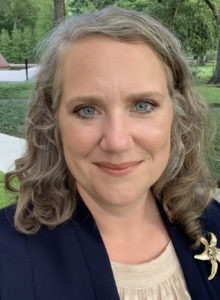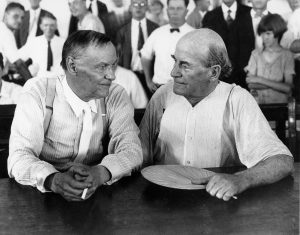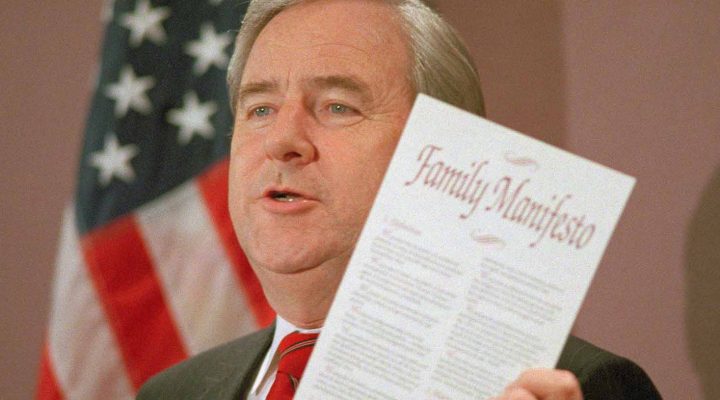The Psalmist writes: “Yonder is the sea, great and wide, creeping things innumerable are there, living things both small and great. There go the ships, and Leviathan that you formed to sport in it.”
Using the tools of biblical criticism, we might consider these beautiful words from the Psalms and note they are poetry, written, like the other Psalms, between 1440 and 586 BCE. We might note the descriptions of creation presented in this Psalm are similar to Genesis and Job and to creation accounts from the Ancient Near East. We might also note the particular similarities between this Psalm and the “Great Hymn to Aten,” which predates (14th century BCE) this Psalm and may have influenced it. We might go on to consider who the author of this Psalm might have been and the intended audience.

Laura Mayo
This way of studying the Bible was once called “higher criticism,” and it is an enormous factor in the anti-evolution movement in the United States.
There seems to be an idea that before Darwin published The Origin of Species in 1859, Christians, as a whole, understood the Bible to be the authority on everything including science. This is not true. For example, in his commentary on Genesis, Reformer John Calvin wrote: “To my mind, this is a certain principle, that nothing is here (that is, in the Bible) treated of but the visible form of the world. He who would learn astronomy … let him go elsewhere.” John Calvin wrote these words 500 years ago. He was by no means a liberal but here he is saying the Bible is not a book of science.
I am certainly not suggesting every Christian fully embraced evolution or biblical criticism, but I am suggesting that until the 1920s and the rise of fundamentalism, there was a peaceful co-existence. Debate and dialogue abounded and in institutions of higher learning biblical criticism and evolution were studied and accepted as sound scholarship without much fight or fanfare.
Evolution as a mobilizing force
William Riley was the first fundamentalist leader to link evolution with higher criticism. In 1909, he denounced both theories as unsubstantiated speculations that substitute hypothetical historical reconstructions of life and of the Bible for “God’s plain word and thereby lure people into denying their divine origin and the duties that follow from that origin.”
Fundamentalist preachers used evolution to mobilize and galvanize. They argued teachers in the universities were undermining the faith and ridiculing the beliefs of impressionable students. Unable to project their influence into the universities, fundamentalist soon began to focus on public schools.
“Fundamentalist preachers used evolution to mobilize and galvanize.”
Efforts to outlaw the teaching of evolution in the public schools began in the early 1920s, and before the decade ended 23 state legislatures had debated such legislation. Only three states — Tennessee, Mississippi and Arkansas — made the teaching of evolution a crime, although Oklahoma prohibited the use of textbooks that promoted evolution, and Florida condemned the teaching of evolution as “improper and subversive.”
Fundamentalism, higher criticism and evolution swirled together in a small town in Tennessee in a hot courtroom. During John Scopes’ trial in 1925, defense attorney Clarence Darrow, one of the most famous lawyers in America at the time, told the courtroom crowd the Constitution protects “even the despised modernist, who dares to be intelligent.” Roaming the courtroom in his white shirt and suspenders, he painted a picture of a blissful Tennessee happily doing what it knew to be best — until fundamentalists made the state a target of their anti-evolution agenda:

Clarence Darrow, left, and William Jennings Bryan speak with each other during the Scopes trial in Dayton, Tenn., in 1925. (AP Photo, File)
“Here is the state of Tennessee going along in its own business, teaching evolution for years, state boards handing out books on evolution, professors in colleges, teachers in schools, lawyers at the bar, physicians, ministers, a great percentage of the intelligent citizens of the state of Tennessee (are) evolutionists,” Darrow said. They “have not even thought it was necessary to leave their church. They believed that they could appreciate and understand their own simple doctrine of the Nazarene, to love thy neighbor, be kindly to them, not to place a fine on and not try to send to jail some man who did not believe as they believed. …
“They believed that all that was here was not made on the first six days of creation, (but that) it had come by a slow process … extending over the ages, that one thing grew out another. They believed (God) … is still working to make something better and higher still out of human beings, … and that evolution had been working forever and will work forever — they believe it.”
He continued: “And along comes somebody” — evangelist William Riley, who had been traveling through Tennessee spreading his anti-evolution propaganda — “along comes somebody who says we all have got to believe it as I believe it. It is a crime to know more than I know.”
Darrow boiled the conflict down to power and fear. He was right. Fear and power and men who knew how to exploit both, that’s how we are where we are now.
John Scopes said, “I believe (my) trial marked the beginning of the decline of fundamentalism. … I feel that restrictive legislation on academic freedom is forever a thing of the past, that religion and science may now address one another in an atmosphere of mutual respect and of a common quest for … truth. I like to think that the Dayton trial had some part in bringing to birth this new era.”
Not the end
The 1920s did birth something new but it was sadly not the end of fundamentalism. While evolution was the target, it was an understanding of the Bible that undergirded and drove many of those following fundamentalist teaching. The world was changing and in fear of what those changes meant, many held tightly to an ideology that required them to do very little thinking.
“It was an understanding of the Bible that undergirded and drove many of those following fundamentalist teaching.”
You don’t need to know Hebrew or Greek or history to understand the Bible, they said, banging their King James Bibles on a pulpit: “You don’t need to know anything other than what is written right here in God’s plain word.”
For fundamentalist Christians, biblical criticism was and is very threatening. Evolution got swept up in that threat. There is almost no way to both accept evolution and be a Christian without biblical criticism, and so evolution was and is targeted.
If one accepts the science of evolution, then the biblical accounts (none of them) of creation are not accurate. If you allow this is true, then you might question whether there was a literal Adam and Eve. If there was no Adam and Eve, then was there ever the temptation by the serpent and a “fall” of humanity? If there was no fall, what is the point of the coming of Jesus Christ? If Jesus did not need to die for our sins, then maybe substitutionary atonement doesn’t hold either.
Evolution proves the Bible cannot be literally true. Some religious leaders don’t take kindly to that sort of proof, just ask Galileo. Those early fundamentalists saw evolution as the undoing of their religion, the undoing of their power, and they were afraid.
Going underground
John Scopes hoped the Monkey Trial would put fundamentalism in its place and end the debate, but the emergence of “intelligent design” and the actions of several state boards of education in recent years makes it clear fundamentalism is hardly gone.
“Marty says the Christian fundamentalists were not defeated in Dayton, Tenn., in 1925, they were just driven underground.”
Martin Marty, a University of Chicago Divinity School professor, was involved in what he called the “Fundamentalism Project.” He studied not only Christian fundamentalism in the United States, but also fundamentalism all over the world and across history. Marty says the Christian fundamentalists were not defeated in Dayton, Tenn., in 1925, they were just driven underground. They became a counterculture, with their own schools, publishers, teachers, theories and culture, which has existed outside of the mainstream culture for decades.
For Marty, the appearance of the Moral Majority, Pat Robertson and the like, marked the resurfacing of the movement. The culture wars surrounding prayer in school, creationism, “family values,” the attempts to remove legal access to safe abortions are no longer happening underground. We are seeing them play out each day.
“Yonder is the sea, great and wide, creeping things innumerable are there, living things both small and great. There go the ships, and Leviathan that you formed to sport in it.” The way the Hebrew is written, this can also be translated: “There go the ships, and Leviathan that you formed to play with in it.” Can’t you just see God playing with a great sea monster in the ocean?
This is not literal. The Bible is not a science book. It’s not a history book either. It’s a collection of sacred stories. Our sacred stories.
Scopes hoped his trial and his $100 fine put the battle between fundamentalism and evolution to rest but such trials, debates, fear and power-grabbing continue to wage war in much of our country. We’ve seen a lot of them in recent months. What do we do?
We keep doing what we’re doing. Fundamentalism is not the only religious voice unless we give up. And we are not giving up. We are needed on the school board and on social media. We are needed in the chemistry lab and the pulpit. We are needed in the boardroom, the classroom and the operating room. We are needed as we are: committed Christians who believe in science and who take the Bible seriously but not literally.
Laura Mayo serves as senior minister of Covenant Church in Houston. She is a graduate of Carson-Newman University and Wake Forest Divinity School, with additional studies at Regent’s Park College of Oxford University. She is active in various interfaith projects and organizations in Houston.


